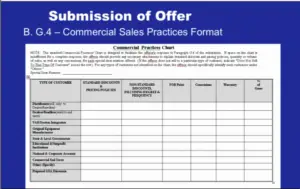Quick background: Oracle was sued on July 29, 2010 by the Department of Justice alleging that Oracle overcharged the government when it licensed its software.
- How does this work? Well, when a company wants to sell a significant volume of software to the government they file what is called a CSP-1 (Commercial Sales Practices Format chart) as part of getting on a government Schedule. On this form the vendor describes their pricing, products, services, etc., by tier of buyers (direct, channel, etc.) and most importantly their discount practices. The government wants to know that no one is receiving better pricing for a similar transaction.
- This Case. What happened in the Oracle case (at least as alleged in the complaint) is that Oracle overcharged the government by selling software to various agencies at higher prices than it was selling the software to commercial customers. A whistleblower (i.e. insider) brought the initial case under seal and the government investigated (which took a few years). FYI: The whistleblower can receive up to 30 or so percent of the award, so there is a very strong incentive to bring these cases.
- What could the award be? Lets look at some similar cases: Oracle paid $98.5 million in 2006 on behalf of PeopleSoft, EMC reached a settlement to pay $87.5 million, and Net App reached a $128 million settlement in 2009.
So what can you learn from this?
1) Commercial Practices Sales Charts are really important, and someone needs to take ownership of them (cradle to grave). I suggest 1 person should be responsible for helping (a) draft the CSP-1, (b) updating it, and (c) ensuring compliance with it. If you read the Oracle complaint, it really looks like many people were confused as to what the Oracle CSP-1 covered and didn’t cover.
2) You can be audited, and they will look retroactively at your transactions and discounts. Not fun.
3) Get expert help, as it is worth it. You should work with an experienced government contracting consultant or lawyer, as this type of contracting can get very complex, very fast. Remember, we are talking about government purchasing regulations here. For example, there are ways of writing these commercial practices charts where you explain what type of transactions will receive a better price than the government (yes this can be done, but you need to know how to draft these). As my good friend Robert Im reminded me–who is software government contracting attorney–writing these is more of an art than a science!
4) The federal government is getting quite acquainted with software transactions and discounting practices, so they only will get better at finding violations and bringing these type of cases.
These 4 tips may be worth remembering as part of your SAAS contract or Software EULA negotiating practices, as it may be too late once you are audited!
Resources:
Example below of a commercial practices chart (Press It to enlarge the image)
Disclaimer: This is provided for educational and informational purposes only, and is not legal advice. Talk to your attorney for legal advice, as they should consider the pertinent facts and applicable law before providing any advice.

